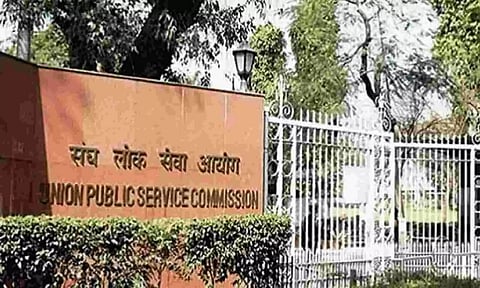
- Home
- Live Blog
- Breaking News
- Top Headlines
- Cities
- NE News
- Sentinel Media
- Sports
- Education
- Jobs

The UPSC examination represents a massive challenge and opportunity for countless aspiring individuals throughout the nation. Known for its rigorous selection process and esteemed status, the UPSC examination is widely considered one of the most challenging and toughest exams in India.
Let's delve into the details of this examination, examining its structure, importance, and the journey of aspirants striving to succeed in this daunting task.
Understanding the UPSC Examination:
The UPSC; India’s toughest examination acts as the doorway to esteemed civil services roles within the Indian bureaucracy, such as the Indian Administrative Service (IAS), Indian Police Service (IPS), and Indian Foreign Service (IFS), among others.
Administered yearly by the Union Public Service Commission, it comprises three stages: the Preliminary Examination, the Main Examination, and the Personality Test (Interview).
Preliminary Examination:
The initial phase of the UPSC, India’s toughest examination, the Preliminary Examination, comprises two objective-type papers: General Studies Paper-I and General Studies Paper-II (CSAT).
This stage acts as a screening test, evaluating candidates' comprehension across various subjects such as history, geography, polity, economics, science, and current affairs. While Paper-I contributes to ranking, Paper-II is qualifying in nature.
Main Examination:
Candidates who clear the Preliminary Examination progress to the Main Examination, consisting of nine subjective papers. These include essay writing, four General Studies papers, two optional papers chosen by the candidate, and two language papers (English and a regional language).
The Main Examination evaluates candidates' depth of knowledge, analytical abilities, and writing skills.
Personality Test (Interview):
The ultimate phase of the UPSC examination, the Personality Test or Interview, assesses candidates' suitability for administrative roles. Conducted by a panel of experts, the interview evaluates candidates' communication skills, personality traits, and their understanding of current affairs and socio-economic issues.
Mastering the UPSC: A Path of Preparation and Persistence:
Preparing for India’s toughest examination, UPSC demands careful planning, commitment, and persistence. Candidates frequently devote months, if not years, to thorough study routines.
They immerse themselves in understanding the extensive UPSC curriculum and refine their writing and interview abilities, undergoing a demanding preparation journey to enhance their likelihood of triumph.
Understanding the UPSC Syllabus:
The initial step in UPSC preparation involves grasping the extensive and varied syllabus outlined by the Commission. Aspirants meticulously delve into topics ranging from Indian and world history to economics, geography, and current affairs.
Additionally, selecting appropriate optional subjects necessitates careful consideration and strategic planning.
Comprehensive Study Resources:
UPSC candidates rely on a diverse range of study materials, including standard textbooks, reference guides, newspapers, magazines, and online resources. Furthermore, enrolling in reputable coaching institutes or utilizing online platforms for guidance and mentorship can offer invaluable assistance in navigating the UPSC preparation journey.
Practicing Answer Writing:
Proficient answer writing is essential for success in the Main Examination. Aspirants participate in regular practice sessions, composing essays, and tackling mock test papers to refine their writing abilities and time management skills.
Feedback from mentors and peers’ aids aspirants in recognizing their strengths and areas requiring improvement.
Personality Development:
Preparation for the Personality Test involves enhancing communication skills, confidence, and personality traits. Aspirants engage in mock interviews, group discussions, and personality development programs to gain insights into the interview process and enhance their performance.
The UPSC exam presents a significant challenge, assessing the resolve and commitment of individuals aspiring to contribute to the nation through civil services. Achieving success in the toughest exam of India, UPSC demands a comprehensive approach, integrating academic excellence, strategic planning, and personal growth.
As aspirants undertake this demanding journey, they epitomize resilience, perseverance, and dedication, endeavouring to fulfil their aspirations of serving the nation with integrity and distinction.
ALSO READ: Assam: Hailakandi Student Detained After Leaking Question Paper On WhatsApp
ALSO WATCH: